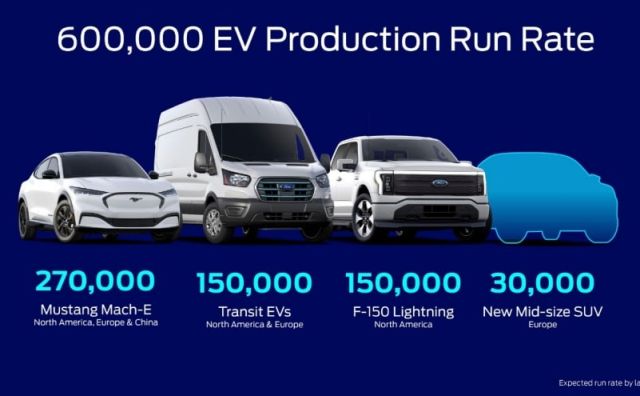The U.S. Department of Energy (DOE) has finalized a $9.63 billion loan to BlueOval SK, a joint venture between Ford Motor Company and South Korea’s SK On, to finance the construction of three new battery manufacturing plants in Tennessee and Kentucky. This marks the largest loan awarded under the Advanced Technology Vehicles Manufacturing (ATVM) program.
The facilities, which represent over $11 billion in investments by BlueOval SK, aim to produce more than 120 gigawatt hours of batteries annually. The first Kentucky plant is set to begin production in 2025, followed by the Tennessee facility later that year.
Jigar Shah, head of the DOE Loan Programs Office, emphasized the importance of the program in strengthening U.S. manufacturing against global competition, particularly from China. “This program is essential to keeping manufacturing capacity and jobs in the United States,” Shah said.
The announcement follows a broader Biden administration push to accelerate electric vehicle (EV) adoption and domestic production. The finalized loan amount is slightly higher than the $9.2 billion conditional commitment announced in June 2023, Reuters news report said.
Nationwide Investments in EV Infrastructure
This loan is one of several recent DOE initiatives to expand U.S. battery production:
Earlier this month, the DOE announced plans for a $7.54 billion loan to the StarPlus Energy joint venture between Stellantis and Samsung SDI for two battery plants in Indiana.
In December 2022, the DOE finalized a $2.5 billion loan for a General Motors and LG Energy Solution partnership to establish three battery cell manufacturing facilities in Ohio, Tennessee, and Michigan.
In addition, the DOE has proposed a $6.6 billion loan for Rivian to construct a plant in Georgia to produce smaller, more affordable EVs starting in 2028.
Rigorous Loan Process
BlueOval SK acknowledged that the finalization of the loan took nearly 18 months due to the DOE’s extensive due diligence process, which included technical, financial, regulatory, and market reviews.
The investments underscore the DOE’s commitment to fostering a robust domestic EV supply chain and creating sustainable jobs in the U.S., particularly in communities impacted by past industrial shifts.

